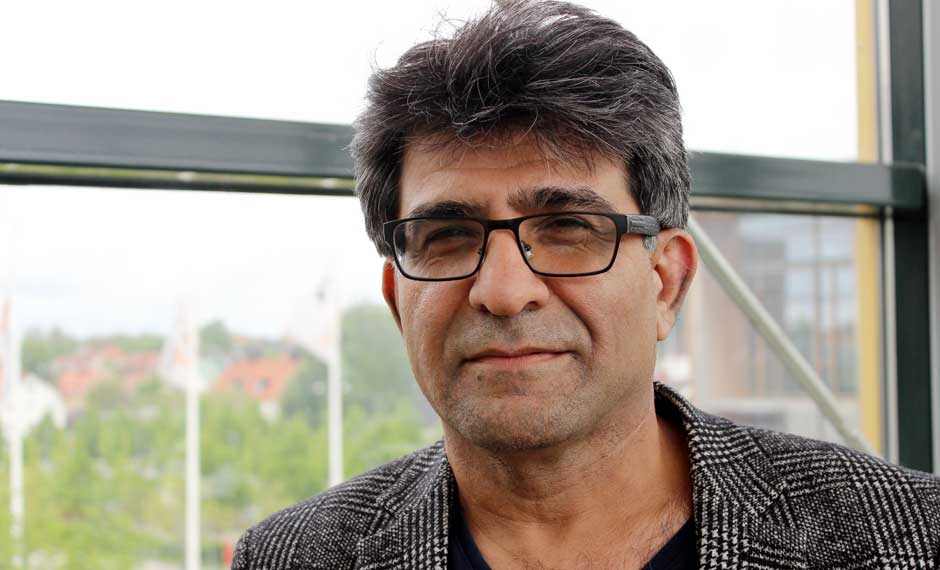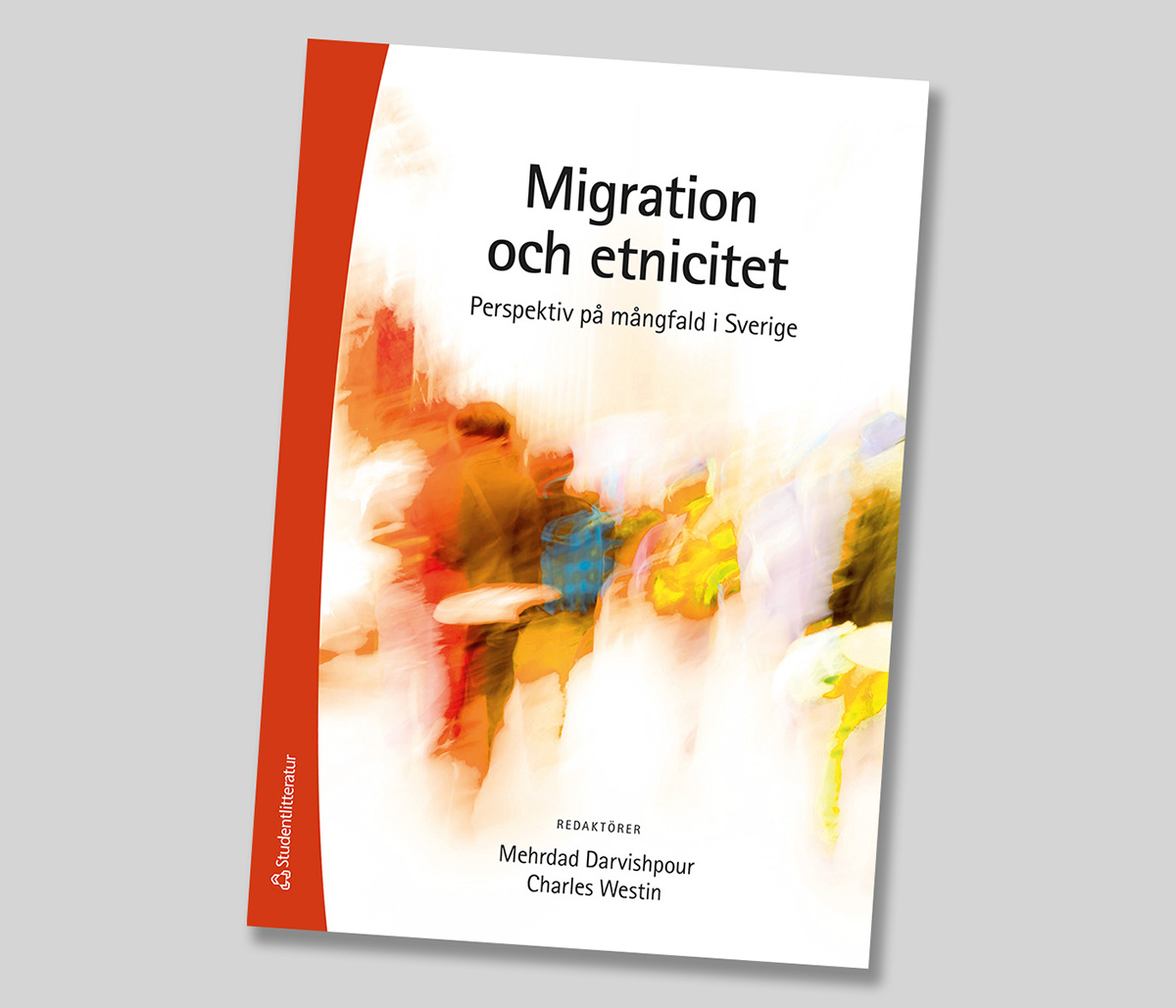“Human rights are the cornerstones of a multicultural society”

Mehrdad Darvishpour is a Senior Lecturer and Associate Professor of social work at Mälardalen University (MDH).
MDH researcher Mehrdad Darvishpour is currently co-editor and co-author of a third, reworked edition of the book "Migration and Ethnicity. Perspectives on diversity in Sweden” (Migration och etnicitet. Perspektiv på mångfald i Sverige). The starting point for the book is to study migration issues and ethnic relations from a perspective of power.
This third edition, with eight new chapters, sheds light on topical subjects such as stratified societies, minority groups in Sweden and Swedish immigration policy. Here Mehrdad talks about the book and his research.
The book cover states that "the point of departure is to study ethnic relations from a power perspective". Can you elaborate on what that means?
"Most research in Sweden conducted on ethnicity and integration focuses on "cultural characteristics", as a characteristic that separates different ethnic groups from one another. Based on this idea, many researchers believe that cultural differences are a threat to integration, and therefore an assimilation policy should be applied, which means leaving one's own minority culture and adapting to the culture of the majority of the population instead. However, other researchers believe that cultural diversity enriches the country, and that a multicultural policy is the best recipe for integration”, says Mehrdad Darvishpour.
"In our research, by contrast, we believe that an overemphasis on the importance of culture for ethnic identification and integration is problematic, as it disregards the fact of ethnic relations being in essence a power relationship which is unequal. In fact, integration is actually about a better allocation of resources in order to increase the influence, power and participation of the individual. The book highlights how social exclusion runs counter to the democratic principles that should guarantee citizens' rights and towards a multicultural society – factors that enhance the opportunities for participation regardless of ethnic origin. Otherwise, a multicultural society will remain a meaningless phrase, as long as people's power, influence and opportunities in life depend largely on their ethnic origin.

The book ”Migration and ethnicity. Perspectives on diversity in Sweden (Migration och etnicitet. Perspektiv på mångfald i Sverige").
What challenges concerning migration and ethnicity do you believe we are currently facing in Swedish society?
“The increased emphasis on what is known as the 'securitisation of migration', when migration is seen as a national security threat, which can lead to a substantial curtailment of the rights of refugees and immigrant communities in society. This is a serious challenge. Also, the increased influence of anti-immigration forces in the Riksdag (Swedish Parliament) as well as increased negative attitudes and prejudices towards diversity and immigration also make it more difficult for ethnic minorities to establish themselves in society," says Mehrdad Darvishpour.
The rise of segregation, with alienation, exclusion and ethnic divisions that increase suspicion between most of society and minorities, is also a serious problem, according to Mehrdad.
“Human rights are the foundation of a multicultural society. Respect for women’s and children's rights should also be predominant over respect for cultural differences. The parallel society that is increasing every day can contribute to a higher level of crime and also to a restriction of children's and women's rights in particular. This may lead to one giving up hope for successful inclusion in the future."
The book is used as required reading at several Swedish universities and university colleges in Sweden, including on the social work programme at MDH. Can it also be used in other ways and read by others and not just students?
“Absolutely. Some chapters in the book are based on previous assignments from the Swedish Government Official Reports (Statens Offentliga Utredningar) (SOU) and the Swedish Association of Local Authorities and Regions (SKR) (Statens Kommuner och Regioner). When the first and second editions were released, I lectured to everyone from parliament to municipal employees, staff in regions, healthcare and County Administrative Boards, sports clubs, churches and the general public around the country," says Mehrdad Darvishpour.
There is great interest in the book and the sale of the second edition (2015) ended up on one of the top lists of the Studentlitteratur publishing company. Now when the third edition is being released, several presentations and open lectures will be held in various places in Sweden:
19 October digitally through Studentlitteratur
10 November at Uppsala University
3 December at Södertörns University
Mid December (date TBA) at Gävle University
16 December at Mälardalen University
Mehrdad highlights three insights that are essential for how society can become more integrated and inclusive:
- Improve integration policy, by focusing on better resource allocation and increased welfare with an active anti-discrimination policy that makes discrimination in working life and other contexts costly for employers and other parties.
- Counteract an us-and-them thinking, through an intersectional perspective, that highlights how various power structures interact. Also, through an inclusion perspective, where integration is not reduced to an ethical issue.
- It is important to refrain from viewing non-native people as a problem and instead to view them as actors and a future resource. Similarly, to pursue a more humane refugee policy and to take the role of integration in a civil society more seriously.
Global sustainable development goals
MDH is conducting research in all of the UN’s global goals for sustainability and this area is clearly linked to Goals number 5, 10 and 16: Gender equality, Reduced inequalities and Peace, justice and strong institutions.
How MDH works to achieve sustainability External link.
External link.
Contact Information
